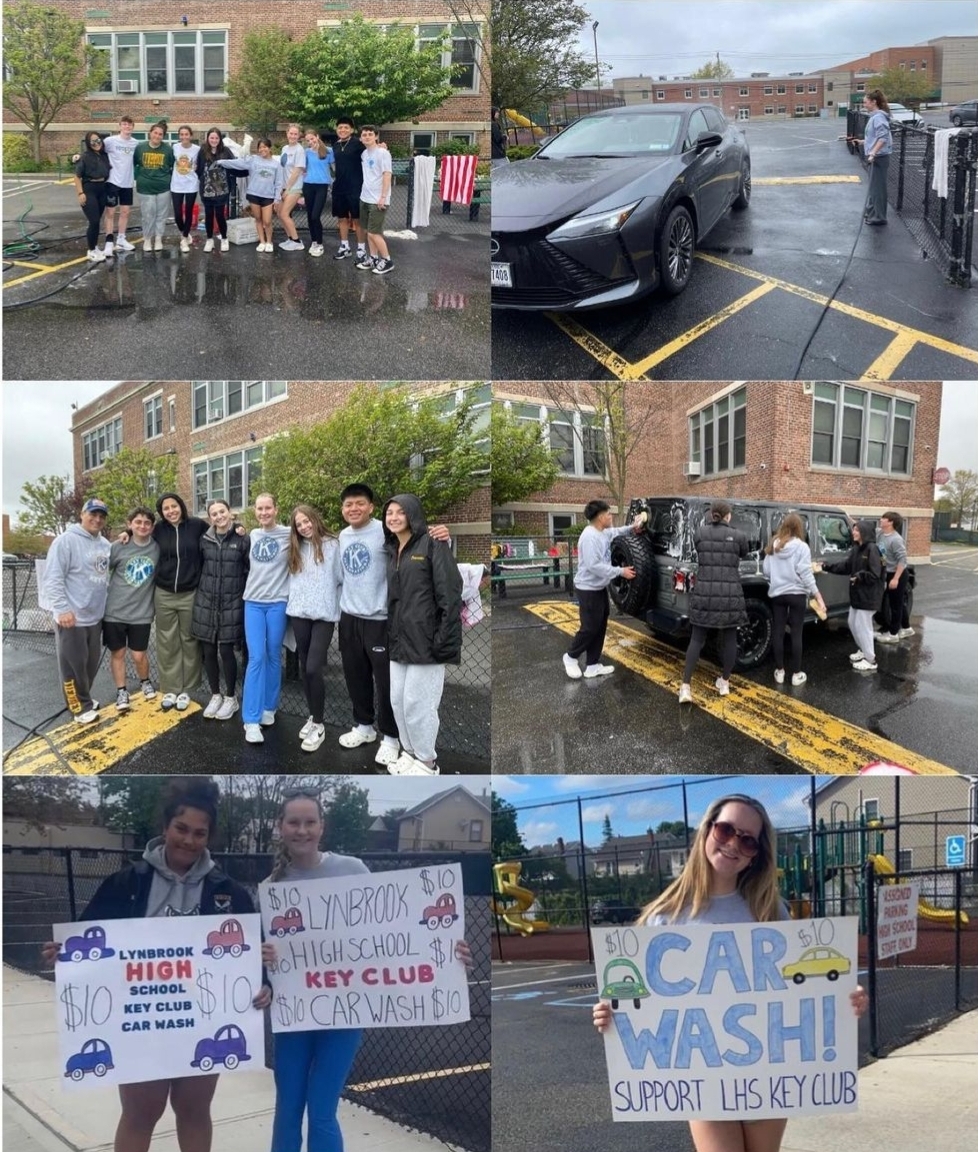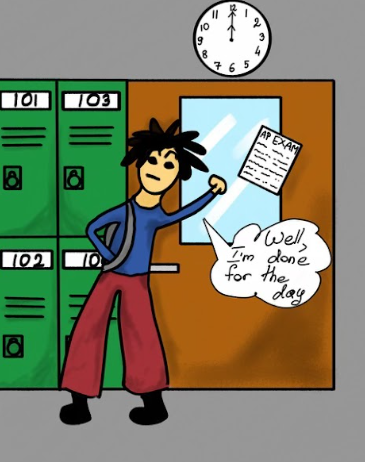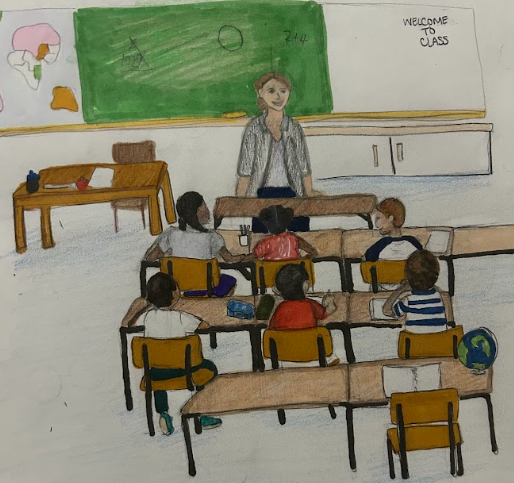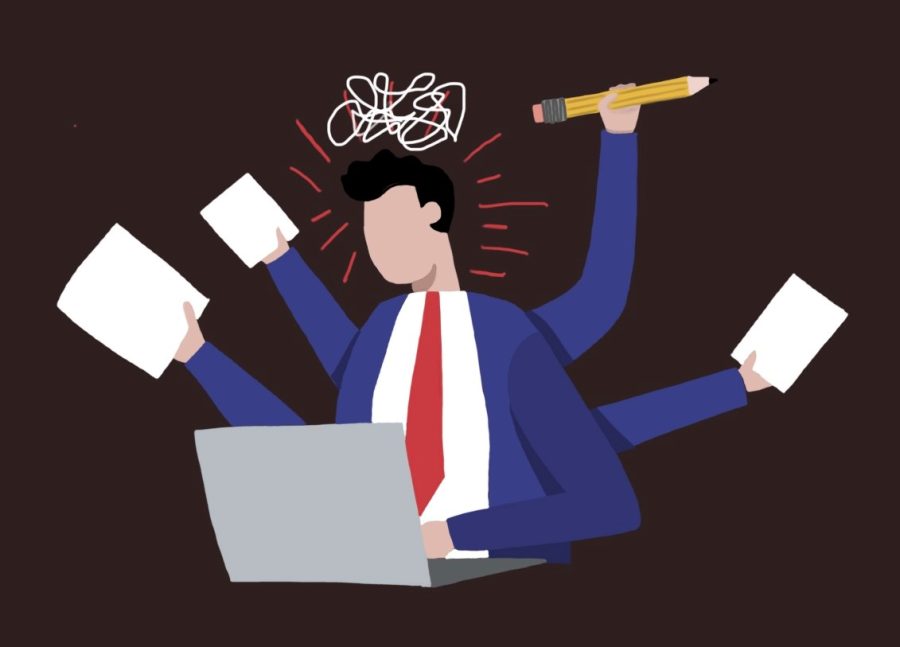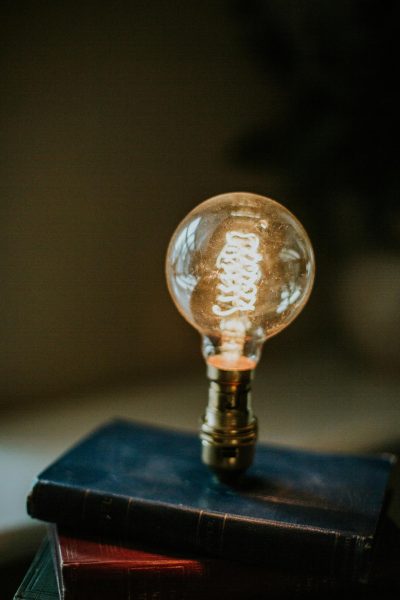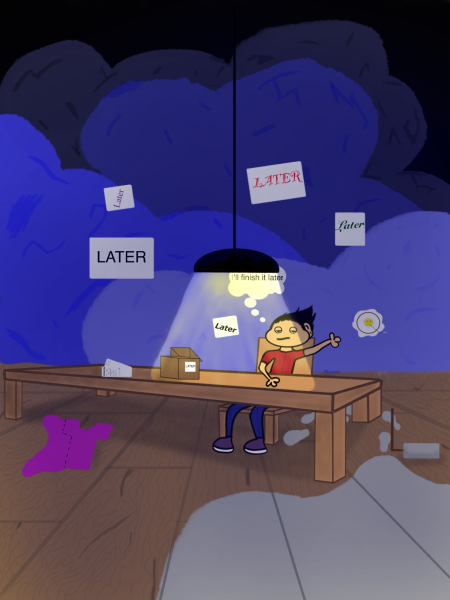The Toxic Cycle of Productivity
Young children are often told by their parents that hard work leads to success. Many have begun to take the phrase “hard work” to an extreme. Toxic productivity–an obsession with constantly doing as much as possible–is plaguing society and causing detrimental side effects.
One must race to school, get through a packed schedule, gulp down food, get changed for volleyball practice, rush to a violin lesson, volunteer at the local animal shelter, and then conquer piles of homework–only to then repeat the process continuously. During the school year, many students find themselves indulging in a similar schedule due to a toxic productivity mentality. These students find the need to fill every second of each day with endless activities. In order to cross everything off of their to-do lists, sleep and mental health are often compromised, generating harmful consequences.
Many students have crossed the line of simply being productive and are falling into the zone of harmful toxic productivity as they prepare for impending college applications. This has led to sleep being replaced with coffee, schedules being crammed with extracurricular activities, and advanced classes being piled onto transcripts, all done in the hopes of standing out to admissions officers. According to a Pew Research Center study done in 2019, the number of high school students who are applying to exclusive schools–those with 10% to 20% admission rates–has more than doubled between 2002 and 2017. The study also concluded the average admission rate has plunged from 18% in 2002 to 7.4% in 2017 at these schools. With this continuous plummet of the acceptance rate, students have felt a heightened pressure to stand out. Growing competitiveness has also intensified toxic productivity as students push themselves to meet the standards of “elite colleges.” Students may also pack their schedules with extracurriculars that they do not genuinely like to partake in, which leads to a lack of time to explore actual interests.
Junior Isabella Martinez agreed that high school students are under a lot of pressure and often fill their schedule with an abundance of activities. “Lots of us [high school students] know that getting into college is more than good grades, so we try to book our schedules with extracurriculars in order to show our diligence. We become so stressed with building a good college application that we even do extracurriculars we don’t enjoy,” she said.
This extreme cycle of all work and no play results in severe physical and mental repercussions. By chugging energy drinks and coffee just to fit in a few more hours of work, vital hours of sleep are lost. Sleep deprivation can lead to short-term effects of drowsiness, forgetfulness, distractibility, stress, and memory and cognitive impairment. The long-term effects are chronic health conditions such as heart disease, kidney disease, high blood pressure, diabetes, stroke, obesity, and decreased functioning of the immune system. Living in a constant state of stress also leads to burnout: a state of emotional, physical, and mental exhaustion. These side-effects lessen one’s productivity and performance, creating a counterproductive cycle.
Many high school students feel overworked, especially during finals seasons. Sophomore Samantha Petrelli agreed that “high school students can feel overworked, especially around May to June during APs, finals, and Regents time.” Petrelli also recognized that although extracurriculars can be fun, they are sometimes stressful. “[Extracurriculars] can definitely create stress because going into school early or staying late is difficult when a student has a lot of work to complete.” Junior Grace Loiselle also agreed that high school students are overworked. “I think high school students are overworked due to pressures from peers and teachers to excel. This stress is ignored because of students’ motivation to get into good colleges and their mental health is often sacrificed for essentially no reason.”
According to the National Library of Medicine, being overworked can also lead to anxiety and depression. A study done by the Pew Research Center reported that the number of teenagers who experience depression increased by 59% between 2007 and 2017. The study also reported that 61% of teens said they felt a lot of pressure to get good grades.
These numbers have continued to climb, with experts claiming that academic pressures are among the reasons. Suicide among adolescents is also rising; according to the Center for Disease Control and Prevention (CDC), it is the second leading cause of death for people ages 10-34. The increased pressure for success is causing catastrophic effects.
In order to create a more sustainable and productive lifestyle, escaping this toxic cycle is needed. For many, this means changing their mindset from the idea that relaxation corresponds with laziness to the idea that relaxation is essential to thrive. Slowing down, exploring interests, and setting realistic goals are all part of breaking the cycle, as well as making sure to eat meals and obtain enough sleep. Although these solutions may seem simple, it can often be difficult for students to use them as they tend to prioritize their immense pressure to succeed.




